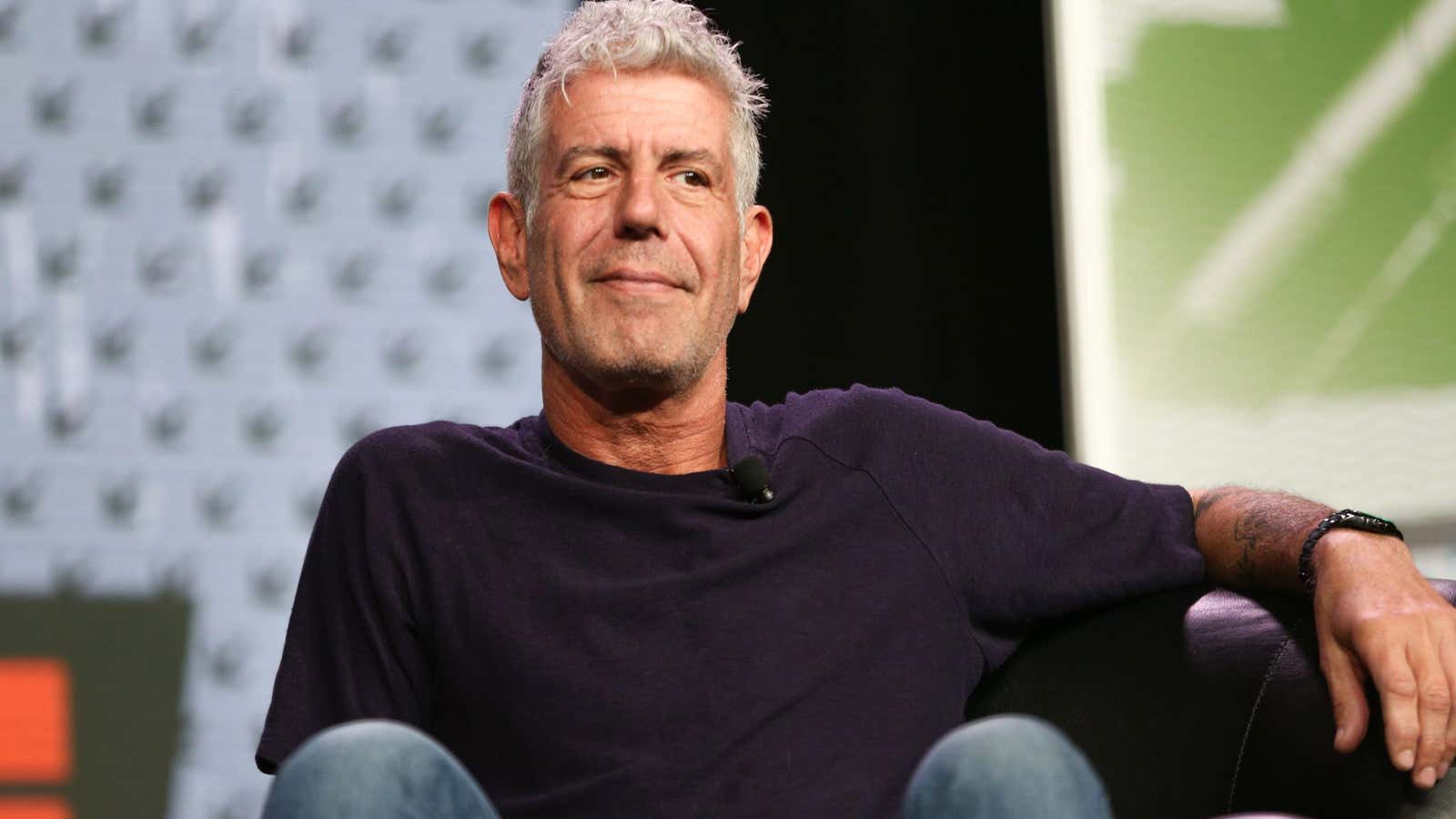The news of Anthony Bourdain’s death was shocking and distressing to millions of people today (June 8), whether they work in industries where he made his mark, including food, media, and travel, or are just casual fans of his cookbooks and television shows.
Indeed, you didn’t need to have a personal connection to Bourdain to recognize how much his talent and style—his extreme authenticity, iconoclastic rejection of class distinctions, and worldliness—may have influenced your own view of your work and culture.
When a suicide hits close to home, there are specific “postvention” protocols, involving professional counselors, that are considered best practice for any organization, including an employer, looking to support someone in distress. But when the loss is more diffuse and ambiguous, a simple note of recognition and invitation to talk further—staying mindful of the guidelines about talking about suicide safely—may be all that’s needed to strike the right note.
In response to the news about Bourdain, Quartz’s lifestyle editor, Indrani Sen, wrote a message to our newsroom staff on the app we use for office communication:
“Between this and Kate Spade, figures who we admire, who die in this way—we just want to acknowledge that this can all be very upsetting. If anyone wants to talk, please reach out to me, your editor, your colleagues. We’re all here for each other.”
It’s an instructive reaction: just the right, short message, to let each of us know we are not alone if we are having a strong emotional response to a public loss.
Employers are increasingly recognizing the role they play in supporting employees’ emotional wellbeing, whether with a reassuring memo or by providing mindfulness training. After all, there’s a good chance we will be at work when something devastating happens in the wider world—or need to show up at the office the next morning, when we still haven’t processed our feelings about an event.
It’s always good practice to let employees know that their feelings have a place at work, and to make sure their managers are available for them if they need to speak. In these ways, a leader can make work a place of refuge, without jeopardizing business goals, whereas ignoring your employees’ emotional wellbeing may be damaging to the company.
And if you’re concerned about an employee who shows signs of being suicidal, seek expert advice on organizational responses that are deemed respectful and potentially life-saving.
The National Suicide Prevention Lifeline can be contacted at 1-800-273-8255 in the US. Here is a list of crisis lines around the world and advice for discussing suicide safely.
